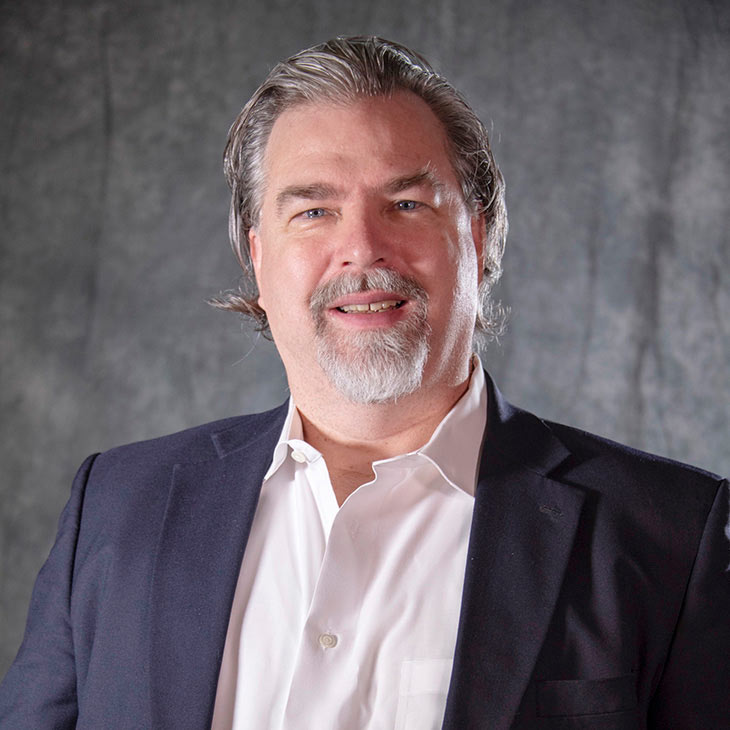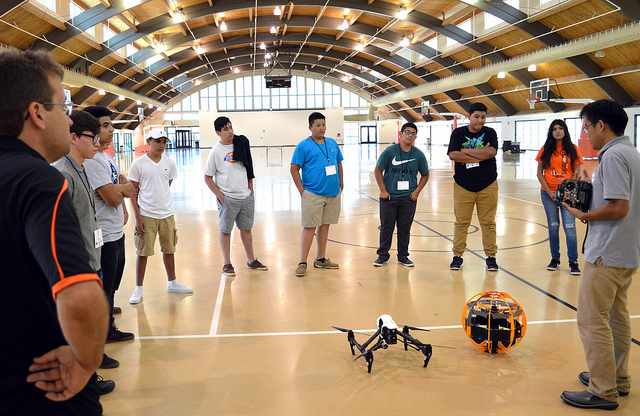
Academic Triumph: OSU program helps Latino youth succeed in school
Wednesday, December 19, 2018
Like many eighth-graders, Alejandra Avina doesn’t yet know what she wants to do for a career.
But she and more than 100 other Tulsa youth in the Latino community are getting academic assistance thanks to Oklahoma State University’s Unidos Se Puede (United We Can) program.
“I think it is a pretty cool program because it brings people together and lets people know what is going on in the community,” Alejandra said. “It also teaches us that we can go into a career and not quit after high school.”
Now in its fifth year, the Unidos program works with seventh- and eighth-graders from five Tulsa Public Schools to encourage high school graduation and to promote higher education. About half the students are English language learners, coming from homes where most parents speak only Spanish. The program began with Dr. Ron Cox and his colleagues from OSU’s department of Human Development and Family Science doing a needs assessment of Oklahoma’s Latino communities in Oklahoma City, Tulsa, Lawton, Altus, Guymon, Stillwater and Clinton.
“We learned a lot about parents’ fears and their desire to help their children do better academically and to stay away from high-risk behaviors like substance abuse or teen pregnancy,” Cox said.
The program is built on three pillars: family engagement, positive peer affiliations and child personal agency. For a young person to acquire "agency," means they are learning how to act on their own behalf rather than allowing adults to be their only advocates. It's a critical point in moving from childhood dependency to the independence that is required in adulthood.
Parents learn about the U.S. school system, including such nuances as what a school counselor does, the importance of parent-teacher conferences and why being on time to school is vital. They also learn research-based strategies to help their child succeed academically.
“These children come in with disadvantage both from poverty and maybe some traumatic experiences they have gone through,” Cox said. “We try to be close enough to the kids to figure out what’s going on and help them find either the resources they need to succeed or to coach them in a different way to view life. You hear so many people say ‘I’m not good at math or science.’ That’s really a false statement. The way to look at that is ‘I’m really not good at that yet.’ And just by adding that one little word, it changes their whole perspective. It frees the child to explore new pathways toward success. We do a lot of coaching around that.”
A child’s friends can have a lasting impact on their lives.
“You can’t tell a child who your friends are going to be,” Cox said. “But you can create a space where children who are like-minded can have fun together, which then helps them to develop those bonds and relationships that help create positive peer groups. If the youth in our program start to think about academic success, that is, who I’m going to be 10 years from now and how I’m going to get there, having them think this way in peer groups is mutually reinforcing. Kids start feeling like ‘hey, I belong here.’”

The Unidos program pairs students with a paid success coach. The coach — typically a college student or a young professional — works with both students and guardians to make important changes over two years prior to entering high school.
“I can definitely tell the program is serving a huge need in the community,” said Elber Arroyo-Rivera, Unidos program coordinator. “The parents and students are really close with the coaches.”
Coaches have access to student grades and attendance records and know right away if someone fails a test. The coach helps the student identify problem behaviors, learn to come up with viable solutions and put those solutions into practice. This might involve finding a tutor if one is needed. Guardians are coached to help encourage the student by making small changes in the home that reinforce the student’s goals to be successful.
“Education is not just the teachers teaching but it is also the parents nurturing,” Cox said. “If your child is going to be successful in school and in life, education has to begin at home. The parents have to be involved in a way that motivates and encourages. We help them do that.”
Francisca Avina wants the best for her three children, including 13-year-old Alejandra.
“My goal is for them to finish high school and then move on to whatever they want to do,” the mother said. “I would like them to learn a profession that they love.”
Students in the program have taken field trips to Tulsa Tech and the Philbrook Museum of Art, attended summer academy at Camp Okiwanee and participated in a workshop about drones and atomic bonds at OSU-Stillwater.
“The kids walk away thinking college could be within reach for them,” Cox said.
Francisca Avina said the program is needed.
“There are a lot of families that benefit from it,” she said.
Latino youth make up roughly one-third of the 40,000 students within Tulsa Public Schools.
To gauge the program’s success, students answer the same questions on multiple occasions before and after their involvement. An example of those questions would be: On a scale of one to 10, how depressed are you? Over time, “this can measure if these two trajectories are significantly different,” Cox said. “If so, there was an effect.” Cox said he would like to get funding to do a control group to better assess the program’s success.
The current grant runs through 2023, and Cox — who is also a cooperative extension specialist — is looking at ways to make components of the program available throughout the state.
Schools that would like more information can contact Dr. Ron Cox at r.cox@okstate.edu or 405-744-9938 or Unidos program coordinator Elber Arroyo-Rivera at elber.arroyo-rivera@okstate.edu or 323-236-2134.
